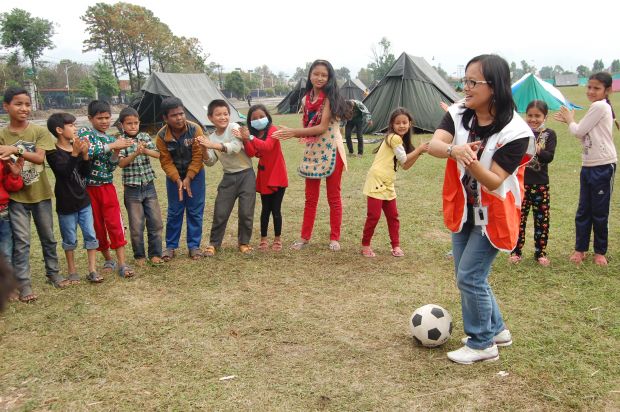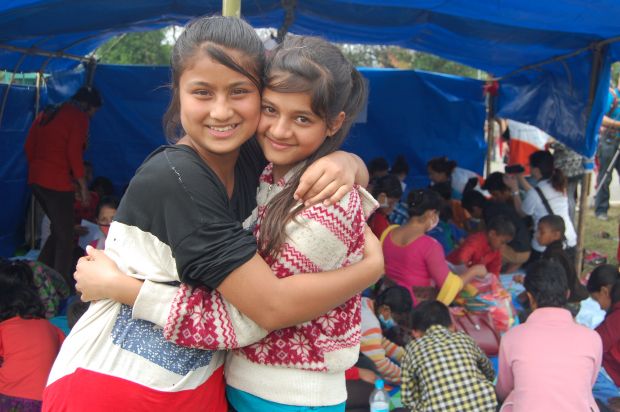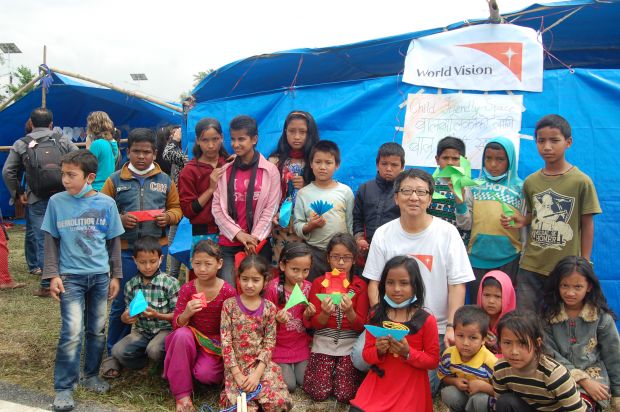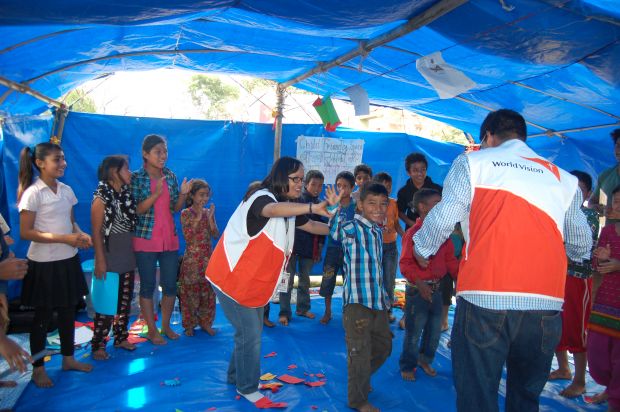The worst-affected parts of the Lamjung, Sidhuli, Bhaktapur, Kathmandu, Lalitpur and Gorkha Districts, Nepal
In collaboration with

May 2015 – September 2015
We bring water, primary hygiene products and general basic aid to 1,500 families affected by the April 2015 earthquake.
Objectives
- Provide temporary shelters, food, drinking water and other essential goods, offering protection to children.
- Maintain health and nutrition for families and provide psychosocial support to victims.
Beneficiaries
7,500 direct
1,500 families

On the ground
The earthquake has left more than eight million people homeless and destroyed 70% of school facilities in the area.
On 25 April, an earthquake registering 7.8 on the Richter scale shook Nepal, with its epicentre in the Lamjung District, 81 km to the north-east of the country’s capital Kathmandu and 68 km to the east of Pokhara. It has had a devastating impact on the country’s two most-populated cities, and some mountain villages have been completely destroyed. A total of 8,100,000 people have been affected, half of whom are children. The official death toll stands at 4,680, but the sheer scale of the destruction wrought by the quake and the continuing inaccessibility of many of the affected areas means there are fears that this figure may pass the 10,000 mark.
The current situation:
- 70% of the school infrastructure in Lamjung District has been damaged. in total, more than 16,000 of the country’s schools are affected.
- 95% of the family homes that World Vision was working with in the Sindhuli District prior to the earthquake are in a critical condition (highly likely to collapse) and 35 homes have already collapsed.
- 40,000 homes in the Gorkha District have been completely destroyed. Other NGOs have not yet reached this area. We have set up temporary shelters with tarpaulins and ropes.
- 90% of the health centres in Ramechapp, Nuwakot, Sindhupalchowk and Gorkha have suffered serious damage.
The population’s most pressing needs are for food, drinking water, blankets and essential hygiene products (soap, toothpaste, sanitary towels, etc.), in addition to medical supplies.

In detail
The beneficiary families will be those in the greatest need, chosen in partnership with local authorities and community leaders.
The criteria for selecting beneficiaries will be:
- Single-parent families (women with children).
- Families with elderly, sick or disabled members.
- Families with children aged under 5 and/or pregnant women.
- Families with no source of income.
The project will take particular care not to duplicate aid to beneficiaries and will coordinate its activities with local government and other authorities present in the area.
Our aid:
With a contribution of €10,000 from the We Are Water Foundation, we’ll be able to support 1,500 families (7,500 people) with two10-litre drums of water for each family, which they will be able to use to collect and treat water (World Vision will also provide them with water purification tablets). 4 litres per person per day is the minimum amount needed for drinking and preparing food.




